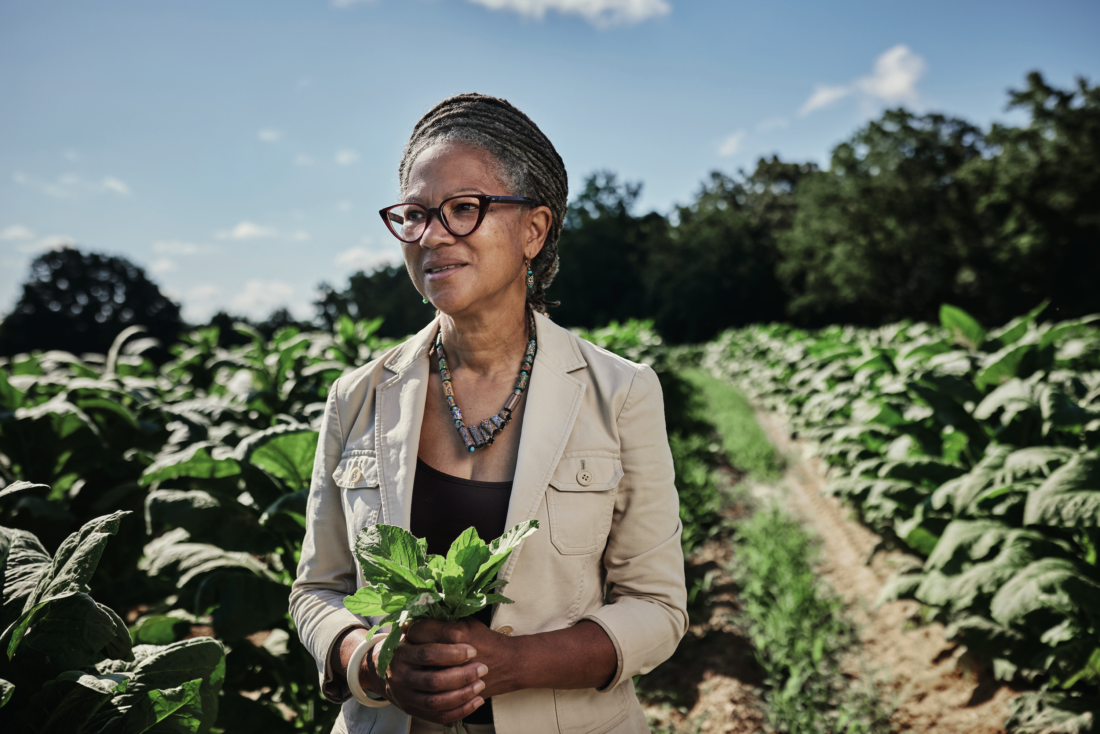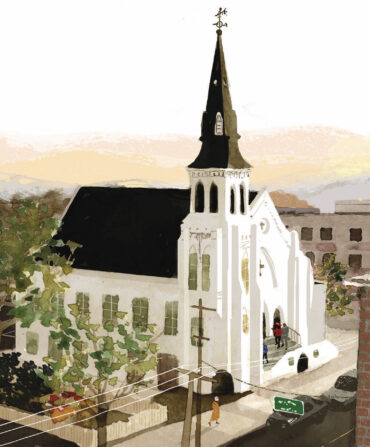In 1983, Savi Horne was a Rutgers law student when she read about the creation of the Land Loss Prevention Project (LLPP), an initiative to stanch the loss of property and livelihood among Black farmers. “I clipped it, pointed to it, and said, ‘One day, I’m going to work here.’” Then she got married and went to work with farmers in Zimbabwe, where a tiny population of whites still controlled huge tracts of land after independence. And she forgot about the LLPP, until she stood up for a Black farmer at a public meeting in 1997. LLPP staff took notice, and the next year she became the project’s director.
Horne now leads the North Carolina–based nonprofit legal services organization, which helps Black farmers—historically stymied by racism in policy and in acquiring loans or property—in such actions as writing wills, incorporating businesses, and managing land or lending disputes with the government, banks, or neighbors. The work has taken her into major policy discussions; she participated in a joint effort, for instance, that resulted in U.S. Department of Agriculture funding to resolve land titles for those who inherit “heirs’ property” without the benefit and clarity of a will.
On a throbbingly humid July day, Horne drove north from Durham to a place that exemplifies her mission: Pine Knot Farms in Hurdle Mills. As she visited with organic tobacco pioneer and third-generation farmer Stanley Hughes and his wife, Linda Leach, she beamed at hearing that the couple’s biggest problem at the moment was the groundhogs eating a swath through Linda’s church garden plot. When Horne first met Hughes, a founding LLPP board member, in the late 1990s, that was not the case. Hughes had lost fifty-two acres due to foreclosure. With the 120-plus he had left and LLPP advice, the couple formed business partnerships and built better structures for, among other things, curing the sweet potatoes that have made Hughes a legend and Pine Knot one of the state’s rare “century farms,” celebrating its 110th anniversary in September.
“Seeing this farm and its transformation has meant everything to me,” Horne says. But she knows that more frequent flooding and hurricanes have worsened environmental degradation and threatened even prosperous farmers. Large-scale corporate agriculture and development have reduced the number of Black and low-income landowners, who often lack the resources to fight or bounce back. That’s when she and LLPP try to assist. “Land,” she says, “is an essential source of our healing, our power, and ultimately our liberation.”








